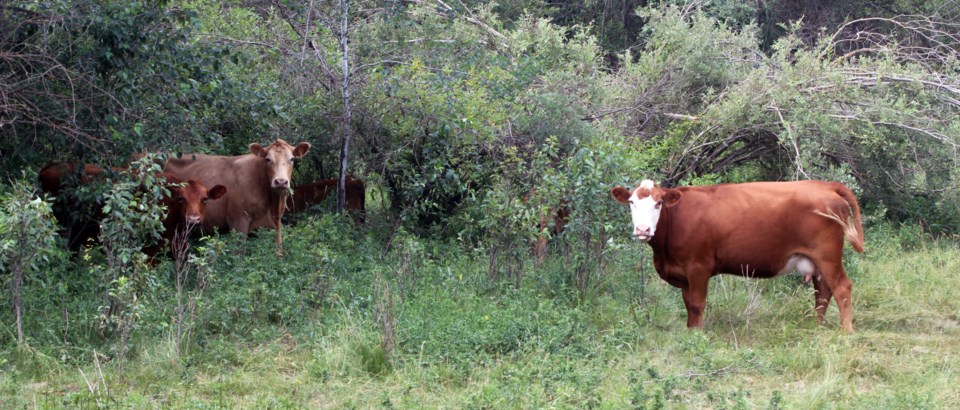As farmers enter the final stretch of a very dry summer, several municipalities in Alberta have declared states of agricultural disaster, but Lac La Biche County is not among them.
As farmers enter the final stretch of a very dry summer, several municipalities in Alberta have declared states of agricultural disaster, but Lac La Biche County is not among them.
Parkland, Mackenzie, Sturgeon and Leduc counties have all taken that step, signaling that producers in their areas are struggling. After several months with very little rainfall, farmers across Alberta are facing difficulties.
Whether or not this county should follow the others’ lead is for County Council to decide. Mayor Omer Moghrabi says the municipality is keeping an eye on the situation, but this county is faring better than some others.
“We’ ve received more rain than most of the other counties, so I don’ t foresee (declaring a state of disaster) unless we’ re approached,” he said.
Yesterday, Alberta’ s Minister of Agriculture Oneil Carlier said the province is in the midst of a drought, from his point of view.
Rich Lake area councillor Wanda Austin, a cattle farmer by trade, says the consistent dry weather doesn’ t just impact crop growers: it makes raising livestock harder, too, by reducing feed crops.
“Between the drought and the grasshoppers, the hay crops are very, very poor and the yield is way down,” said Austin. “If our new government is going to offer any assistance for people to get through this remains to be seen.”
County spokesperson Julie MacIsaac says declaring a state of agricultural disaster is a symbolic gesture to give voice to the issue.
“While this declaration in itself may not result in aid, it signals to the provincial and federal governments that relief programs may be sought,” said MacIsaac. “There is no specific threshold or policy at the County for declaring a state of agricultural disaster. If such a state were to be declared, it would be a decision of Council based on input from constituents and depending on conditions.”
According to Alberta Agriculture and Forestry, vast swathes of northern and central Alberta are seeing some of the lowest moisture levels on record.
Recent rains might not be enough to turn things around after a difficult start to the growing season, MacIsaac says, explaining that earlier precipitation would have been more helpful.
“While the rain we received is welcome, rain in June and early July is crucial for pasture, hay and cereal crops,” she said. “The impact on hay and pasture is likely the most pronounced, which will significantly reduce the supply of winter livestock feed available to farmers. Cereal and oil seed crops like wheat and canola will also likely see decreased yields because of the dry conditions.”
